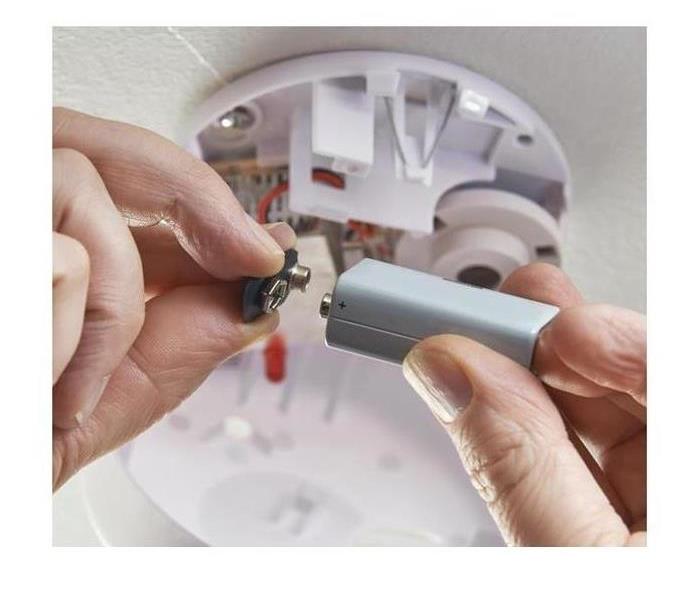Smoke Alarm 101: Knowing When to Change the Batteries
10/6/2021 (Permalink)
Smoke alarms are among the most common ways to prevent home fires. But these potential saviors are only useful if they’re working – and too often they aren’t. The top reason is dead batteries. When should you replace the batteries in your home fire alarms? Here are a couple of pointers to guide you on handling the alarms in your home.
About Fire Alarms
Public awareness efforts have transformed smoke detectors and fire alarms into one of the most common prevention tools in the average home. They’re easy to use and effective against stopping fire damage or worse. But for every one that is functioning, there are others that aren’t. As a result:
- Home fire deaths happen most often when there are no alarms or non-working
- Of fires in homes with alarms that failed, about half were due to missing batteries
Know Your Battery
Today’s smoke alarms often are powered by lithium batteries or 9-volt batteries. A lithium-powered alarm won’t need a new battery for a decade. But a 9-volt needs annual replacing. Do it when you set your clocks back and you won’t forget.
Don’t Ignore the Beep
Most homeowners are familiar with the annoyance of a falsely beeping fire alarm. Don’t ignore the sound. A beeping alarm is a sign your alarm is running low on juice. So, heed the beep and replace the battery.
Know Expiration Dates
The average smoke detector will function properly for eight to 10 years. After that, you’ll need to replace it. Keep a log of the age of your device. You should also look at your device manual to determine if your alarm needs more frequent replacement.
Smoke alarms have drastically reduced the impact of house fires. But they must be used properly to protect your home. Change your alarm batteries on time, every time and minimize the risk of damage and expensive fire cleanup in your home.



 24/7 Emergency Service
24/7 Emergency Service
